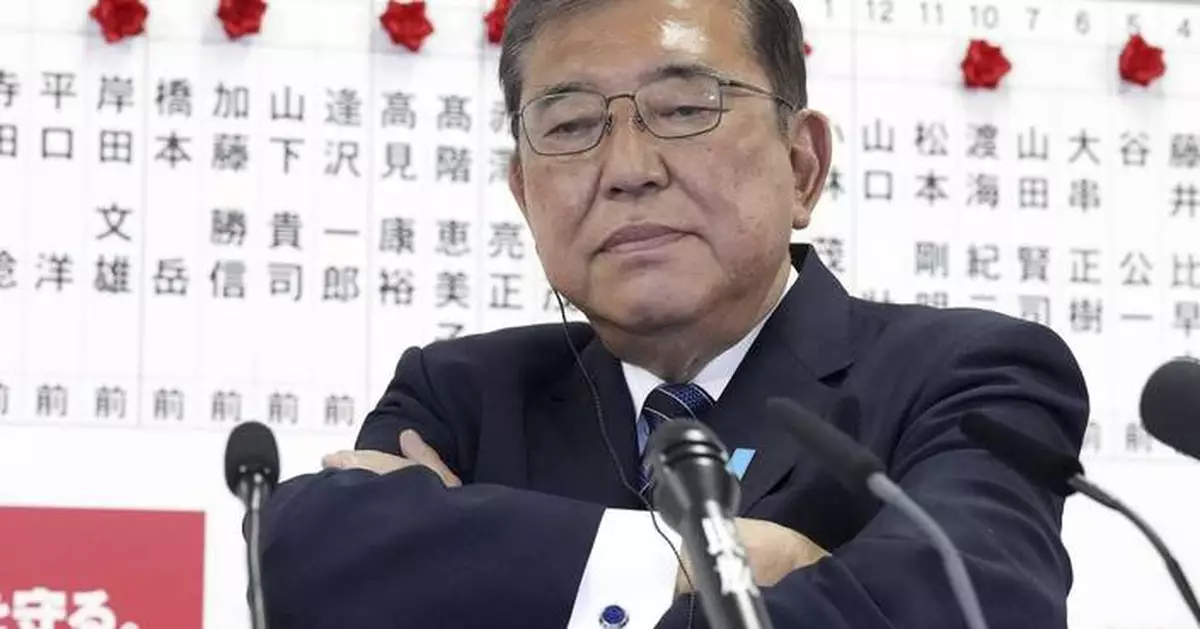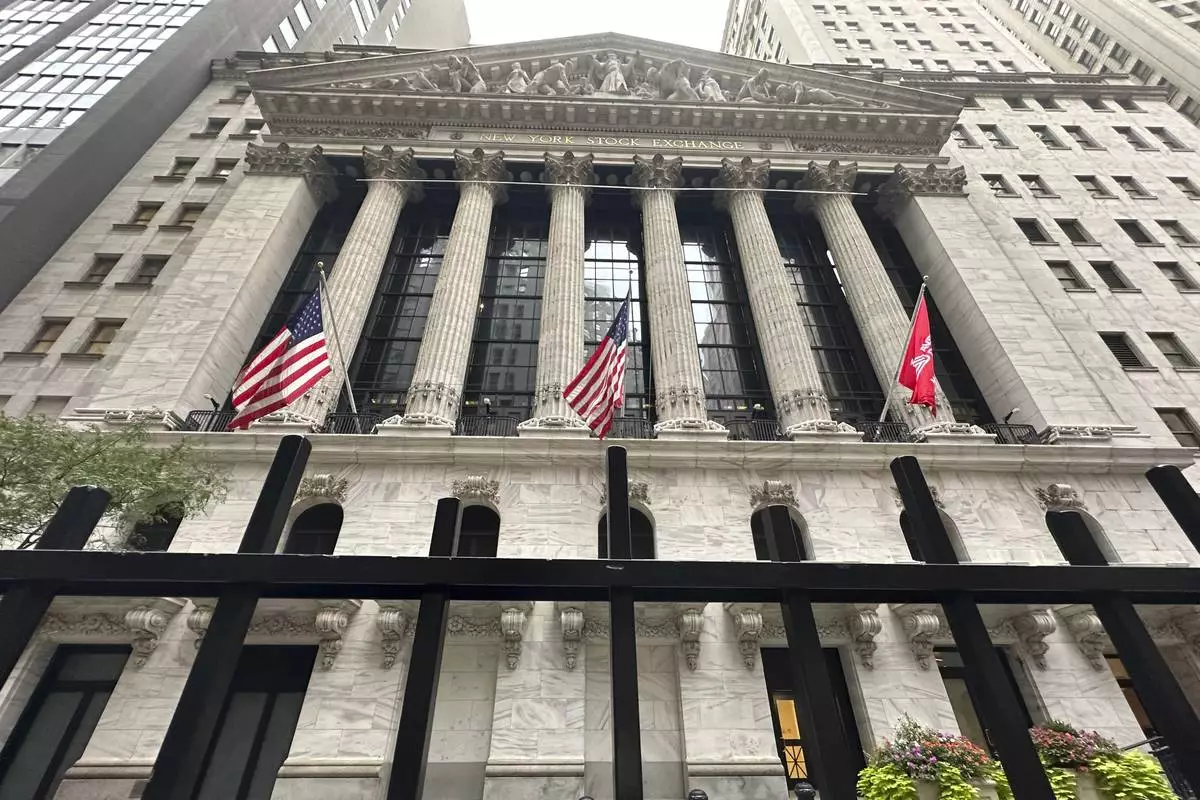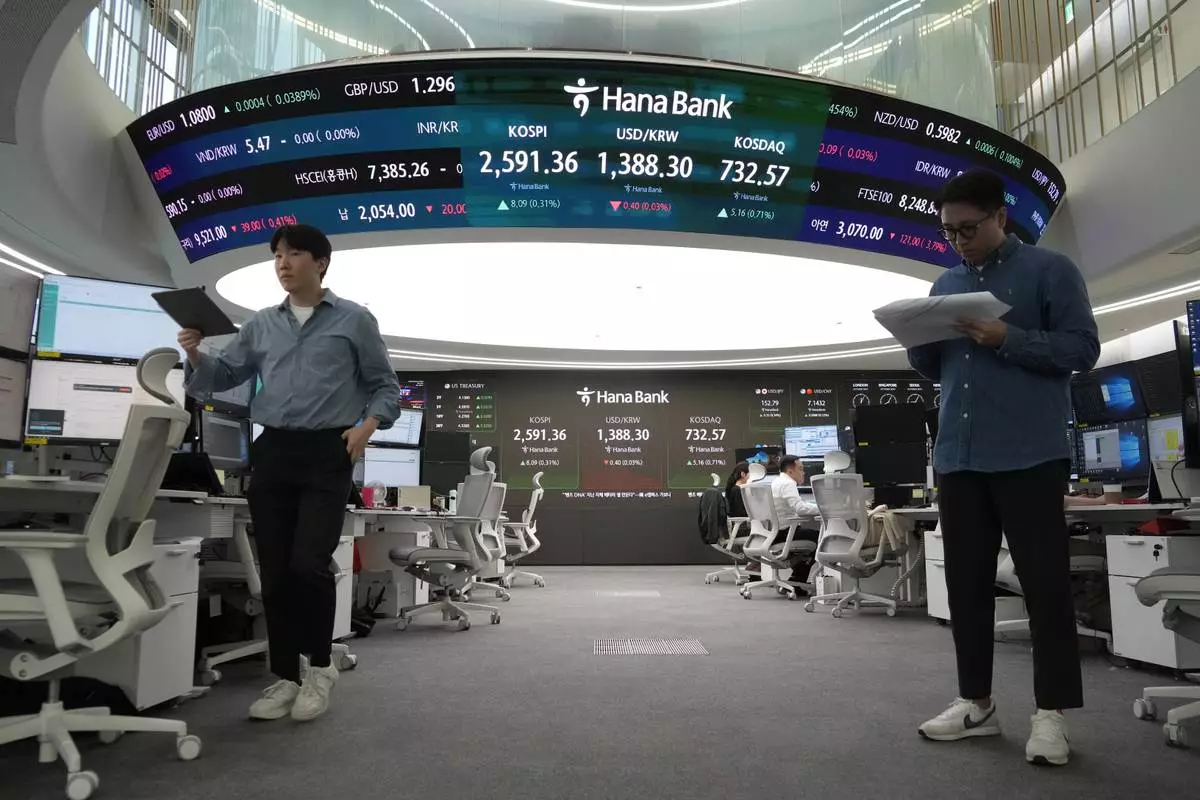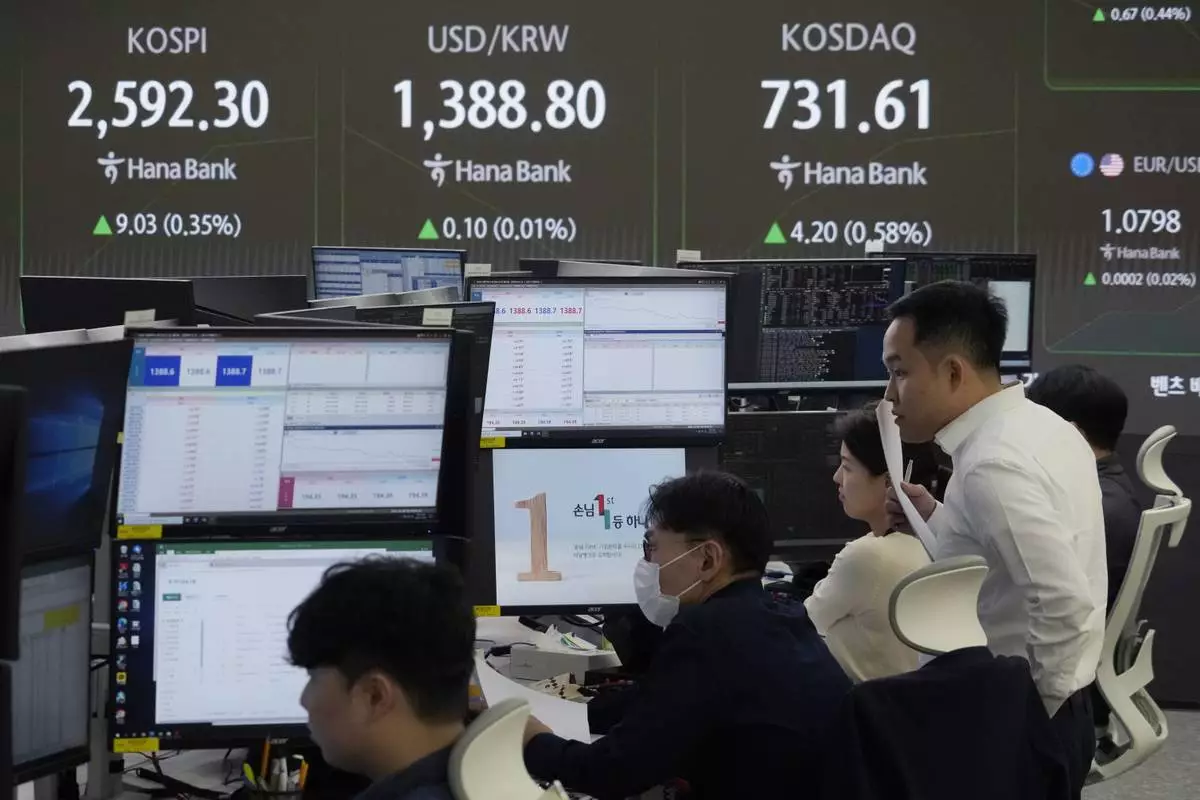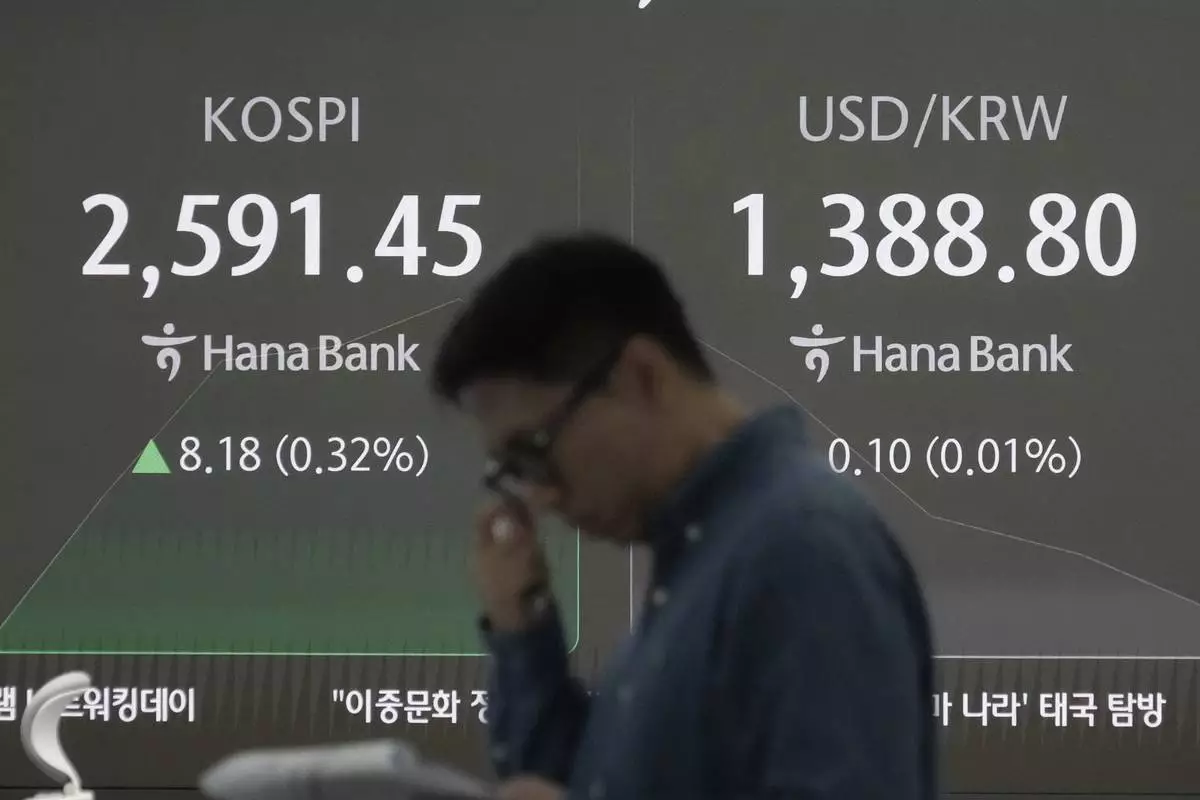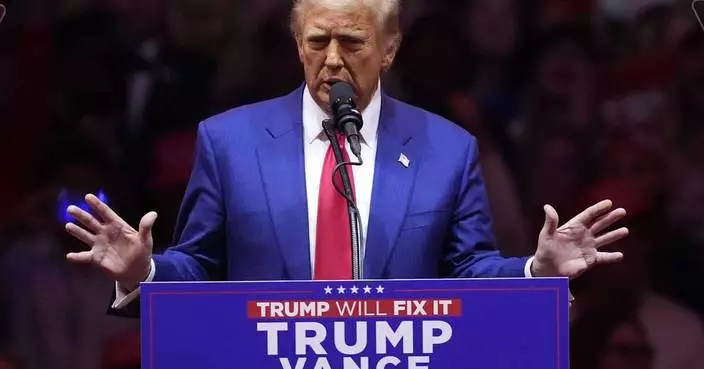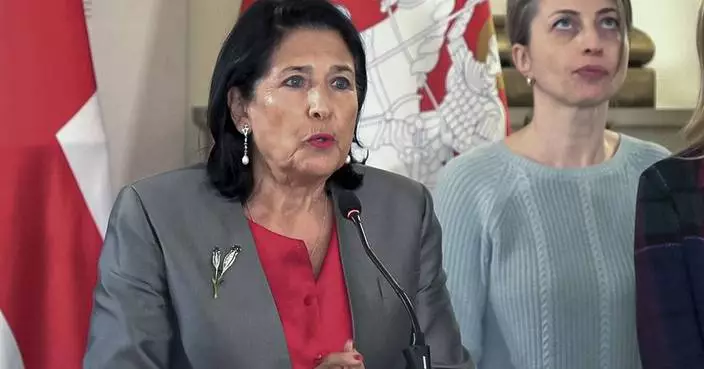TOKYO (AP) — Japanese Prime Minister Shigeru Ishiba’s ruling party and its junior partner lost their majority in Sunday’s parliamentary election. The loss, much bigger than expected, is bad news for a leader who's only been in power for a month.
It's largely a reflection of voters' anger at the repeated financial scandals that have hit the Liberal Democratic Party, which has ruled Japan nearly without interruption since 1955.
The big loss throws the nation's politics into turmoil, and will make it difficult for Ishiba to push through the changes he needs to win back voter support.
The Associated Press explains how the election results could weaken Ishiba's hold on power, and what the poor showing means for Japan’s diplomatic, economic and security goals.
The governing Liberal Democratic Party lost its sole majority in the lower house, the more powerful of Japan’s two-chamber parliament.
Even adding the Buddhist-backed Komeito party, which has partnered with the LDP for a quarter century, Sunday's showing failed to meet Ishiba’s goal of retaining a majority in the 465-seat chamber.
The LDP saw a number of veteran lawmakers lose their places in parliament, including a current agricultural minister and other heavyweights who have served in key Cabinet and party posts.
Sunday’s election was also a disaster for Komeito, which was embroiled in scandal; its new leader, veteran Keiichi Ishii, lost his seat.
The main opposition Constitutional Democratic Party of Japan, meanwhile, made huge gains, adding 50 seats, but it doesn’t have enough to take power. To build a big enough coalition to do so, it would have to join forces with the other opposition parties, from communists to conservatives.
For now, Ishiba's election loss does not mean a change of government.
Ishiba said at a news conference Monday that he won't step down and that his task is to work harder to push for political reform, improve the economy and regain people's trust.
“As we face a severe security and economic environment, we cannot let politics stall,” Ishiba said. “I will steadily push forward policies in order to live up to the people’s expectations. That’s how I take my responsibility.”
But the parties he is likely looking to as partners have lots of differences with the LDP, and it will be extremely difficult to form a big enough coalition before the next parliamentary session, which has to happen within 30 days of the election to appoint a prime minister and Cabinet. Ishiba is likely to remain as premier.
Falling short of a majority will make it difficult for Ishiba to get his policies approved by parliament.
The short answer is voter outrage over the financial scandals at a time when many people struggle with rising prices and dwindling salaries.
Ishiba's predecessor, Fumio Kishida, resigned after his anti-corruption measures failed to regain public trust, but Ishiba largely adopted those same measures. He tried to appease voters by withdrawing his endorsement for Sunday’s election from a bunch of tainted candidates — out of dozens linked to the scandal. But the LDP was hit by media reports that the party had distributed 20 million yen (about $131,000) to local branches of those denied endorsement.
Experts also say it was voters' disappointment over Ishiba’s backpedaling on earlier policies. He was also seen as underestimating public anger over the corruption, which gave the impression that he was no different from his predecessors.
“It just comes down to the fact that they didn’t deal with it properly. And now they’re facing the consequences,” said Rintaro Nishimura, a political analyst for The Asia Group.
Ishiba pledged to revitalize the rural economy, address Japan’s falling birth rate and bolster defense, but his Cabinet is filled with familiar faces and has only two women.
In an apparent compromise to the party's influential ultra-conservatives, Ishiba quickly retreated from earlier support for a dual surname option for married couples and for legalizing same-sex marriage despite widespread public support.
Ishiba said Monday he would stick with the Komeito party and is not immediately seeking a partnership with the opposition. He also said he was willing to meet with the parties that gained seats in Sunday's vote and discuss their policies.
In order to gain support and strengthen his leadership, Ishiba could also join forces with the Democratic Party of the People, which wants lower taxes, or the conservative Japan Innovation Party.
DPP head Yuichiro Tamaki said he was open to “a partial alliance.” Innovation Party chief Nobuyuki Baba has denied any intention to collaborate.
The leader of the largest opposition Constitutional Democratic Party of Japan, centrist Yoshihiko Noda, who served as prime minister during a period when the LDP was out of power between 2009-2012, may also be seeking a coalition with the DPP and Innovation. However, experts say it would be difficult to find common ground on controversial issues like nuclear energy.
Noda also expressed a desire to run against Ishiba when the parliament reappoints the prime minister at the beginning of the upcoming session as a formality after the general election to show his determination for a change of government.
“It really comes down to politics to see who can give up more but not give out too much,” Nishimura said. There are “a lot of questions and uncertainty going forward.”
Ishiba needs to focus on political reform and boosting the economy to address voter dissatisfaction and survive as prime minister. There is a push to provide more subsidies for low-income households and others who need support.
But the attention on these issues could distract from a defense buildup, plans to increase the military budget and Japan’s diplomatic ties with the United States.
The political uncertainty and Ishiba’s weakened grip on power could influence Japan's ties with its top ally, the United States, which stations 50,000 troops in Japan. Former President Donald Trump will certainly push for more burden sharing by Japan if reelected, according to Yu Uchiyama, a University of Tokyo political science professor.
“With all the attention on largely domestic issues, Japan’s international profile may weaken,” Uchiyama said.
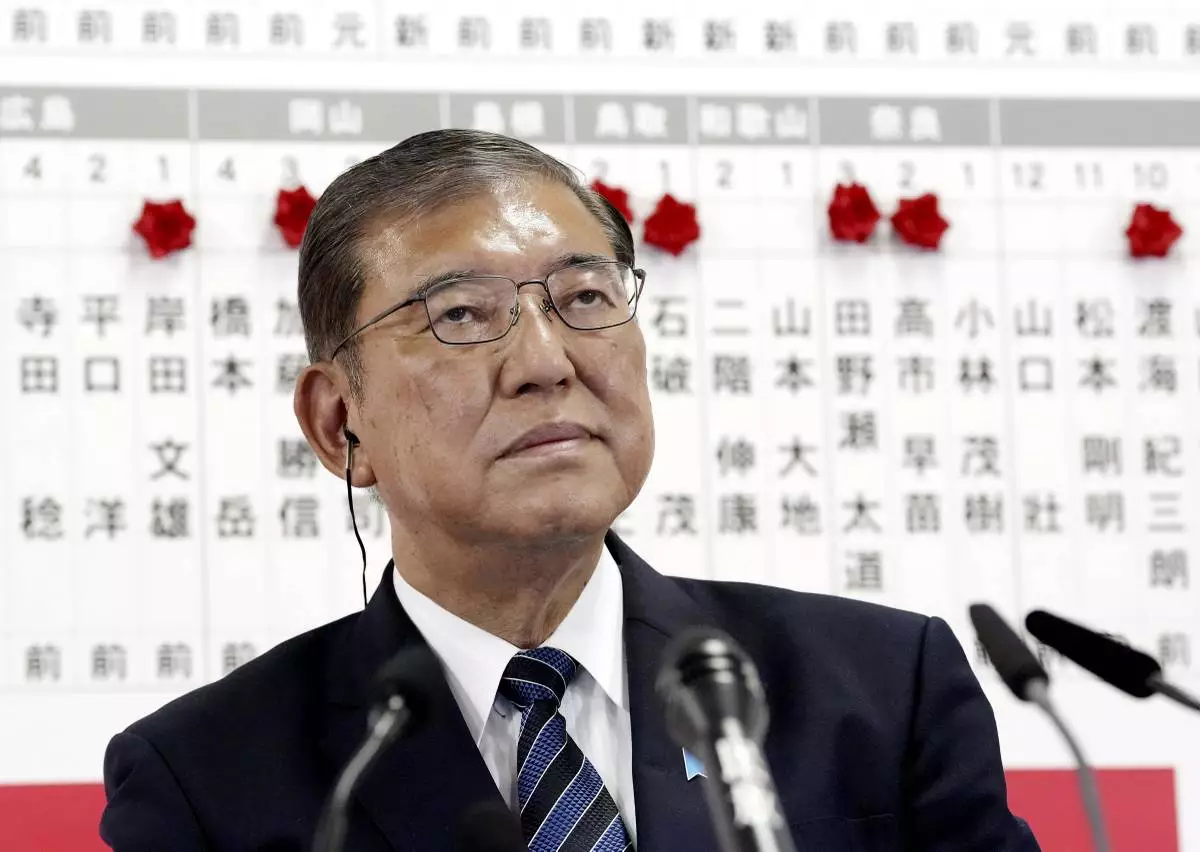
Japan's Prime Minister and president of the Liberal Democratic Party (LDP) Shigeru Ishiba pause as he speaks to the media regarding the early result of lower house election, at the LDP headquarters Sunday, Oct. 27, 2024, in Tokyo, (Kyodo News via AP)
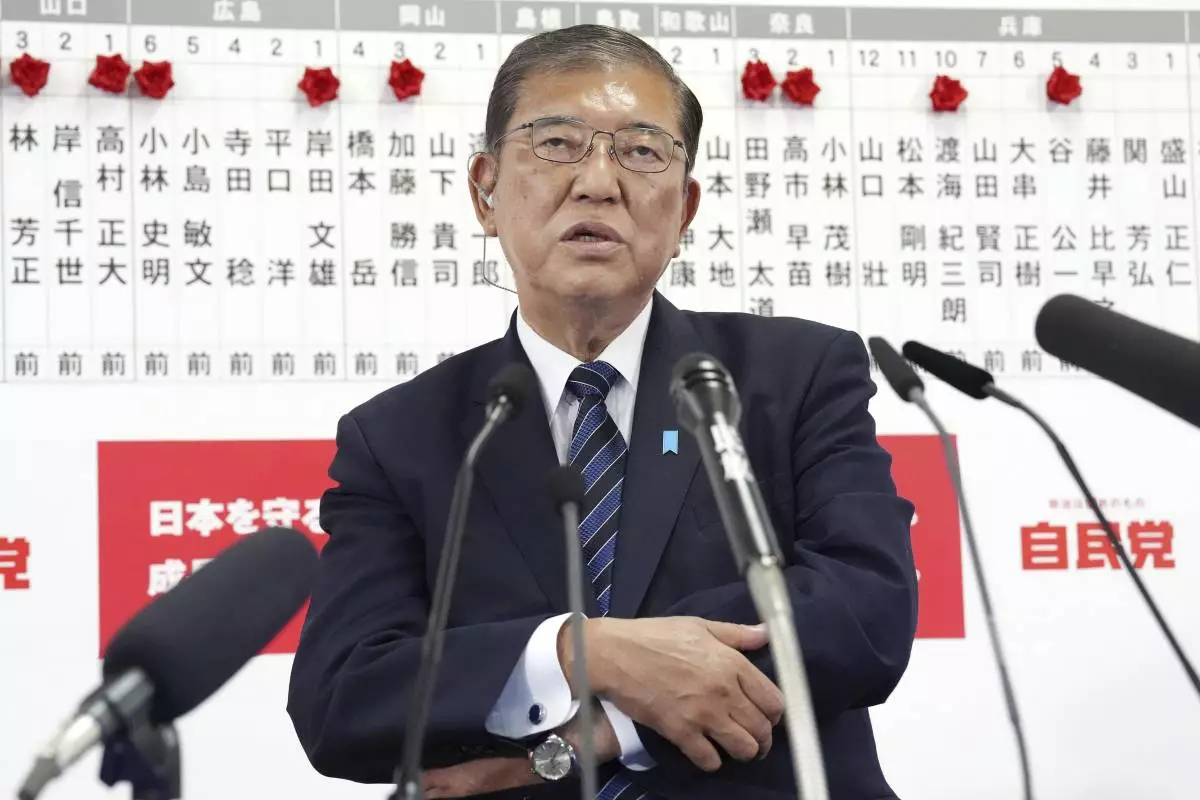
Japan's Prime Minister and president of the Liberal Democratic Party (LDP) Shigeru Ishiba speaks to the media regarding the early result of lower house election, at the LDP headquarters Sunday, Oct. 27, 2024, in Tokyo, (Kyodo News via AP)
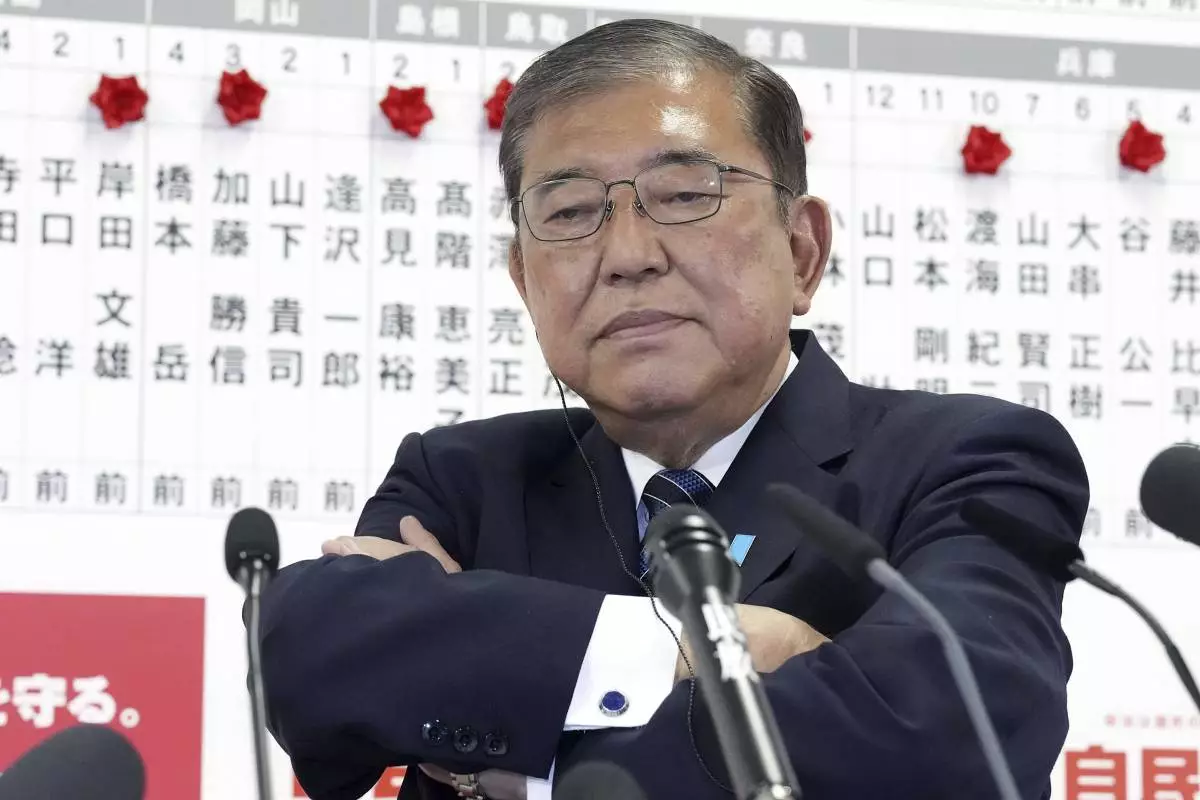
Japan's Prime Minister and president of the Liberal Democratic Party (LDP) Shigeru Ishiba pauses as he speaks to the media regarding the lower house election, at the LDP headquarters Sunday, Oct. 27, 2024, in Tokyo, (Kyodo News via AP)


